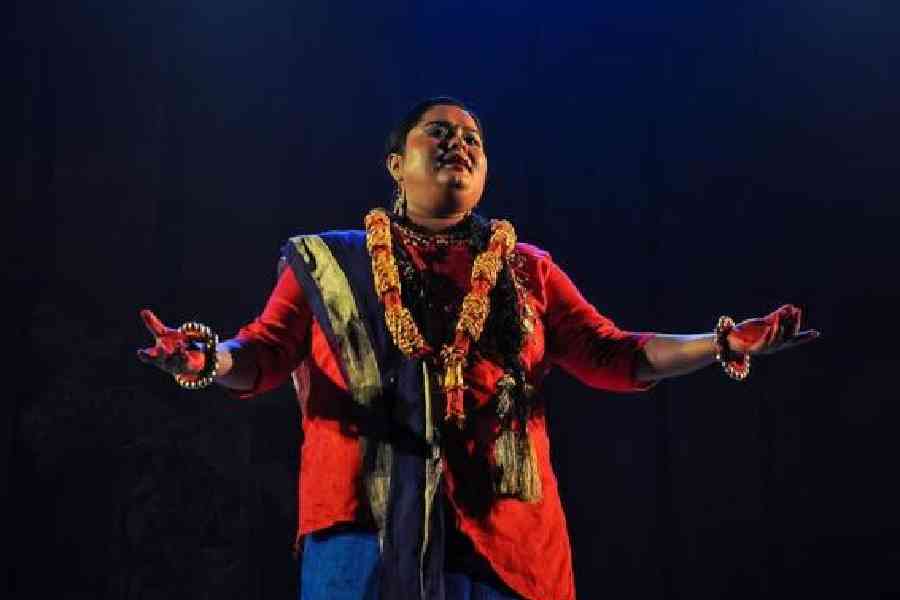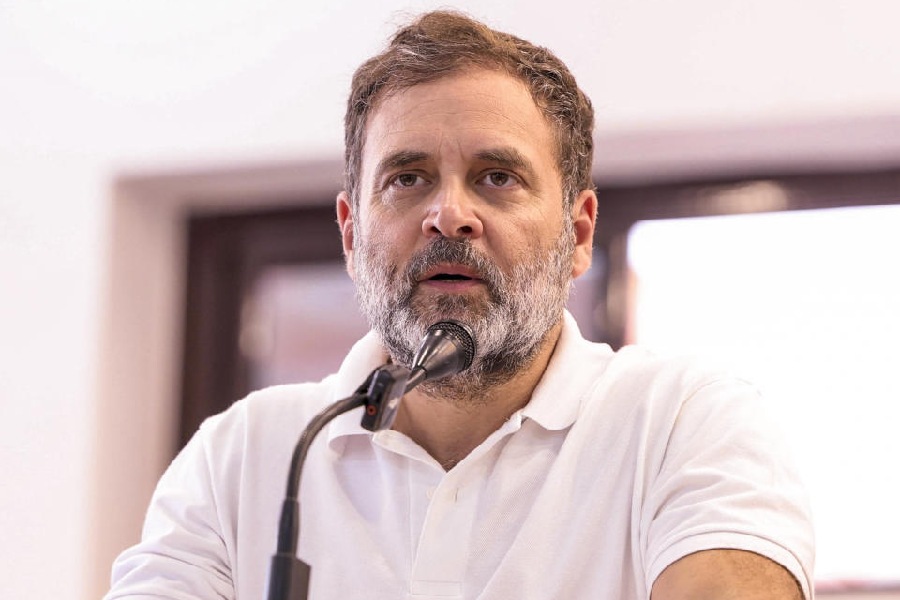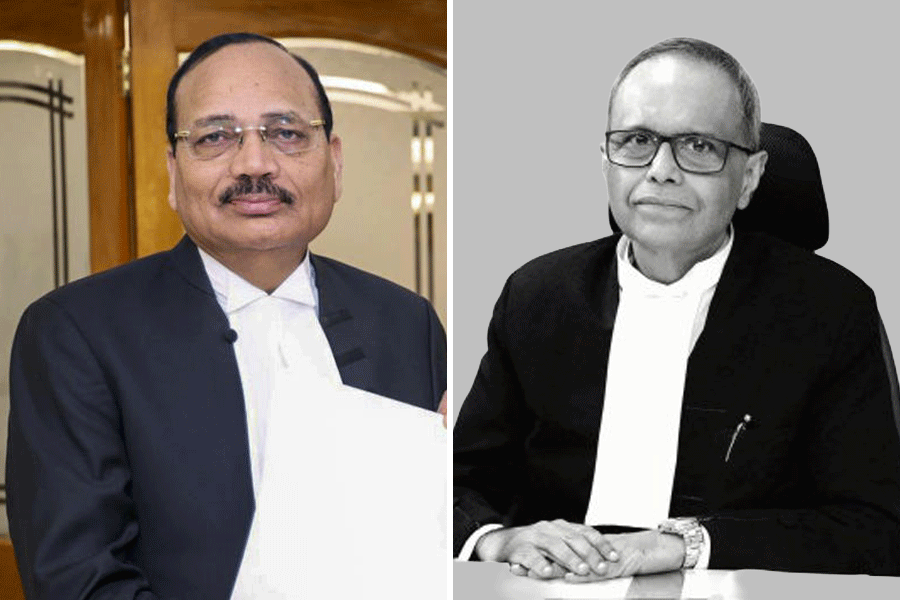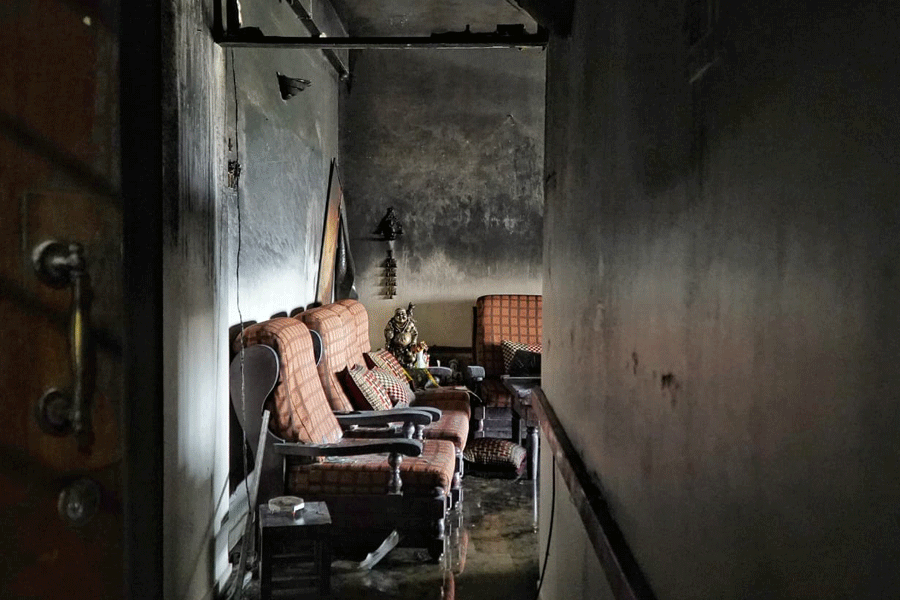How long can a man fight evil before he too becomes what he hates? Does war — even a war in the name of dharma — justify killing others? Nandikar’s Panchajanya has been probing these questions by revisiting the myth of Krishna.
The play opens on the battlefield of Kurukshetra where wading through a sea of decaying corpses is the Kaurava matriarch, Gandhari. She wails and curses Krishna for being the orchestrator of wars. Even though Krishna tries to justify himself — he did it to fight dictatorial regimes and liberate people, he says — at the dusk of his life, Krishna, too, must look back at the mounting losses. Like Lady Macbeth, he cannot wash the blood off his hands.
Nandikar has staged Panchajanya, scripted by Parthapratim Deb, multiple times and Sohini Sengupta (who also directed the play) has ably taken over the role of Gandhari from Swatilekha Sengupta. The first half of the play is livened up by dazzling choruses and dance performances and chooses not to delve into the pertinent questions at its core. In contrast, the second half, which begins after the death of Jarasandha, is crowded with incidents — deaths, wars, losses of kingdoms. Sengupta’s commanding stage presence is complemented by her co-actors. Saptarshi Maulik as the young Krishna is energetic and charming. Deb, as the older Krishna, is calm and mature in his dialogue delivery. However, Jarasandha, played by Swajan Srijan Mukherjee, is insipid and fails to incite the horror that his character as the prime antagonist of the play demands.
Debabrata Maity’s minimalist set design uses a prop that alternates between signifying a throne and a dead tree, symbolising the link between the hunger for power and destruction. Mayukh Mainak’s music evokes an ambience of awe and grandeur. The climax, where Krishna accepts Gandhari’s curse and eventually comes to terms with his failures, is spell-binding. Astute viewers would also find Krishna’s desire to establish an “akhand Bharat” and his transformation from a benign truant to an indifferent autocrat eerily similar to the real world.










